
Abdur Rahman Khan also known by his epithets, The Iron Amir, was Amir of Afghanistan from 1880 to his death in 1901. He is known for perpetrating the Hazara Genocide, but also uniting the country after years of internal fighting and negotiation of the Durand Line Agreement with British India.

European influence in Afghanistan has been present in the country since the Victorian era, when the competing imperial powers of Britain and Russia contested for control over Afghanistan as part of the Great Game.

Jalalabad is the fifth-largest city of Afghanistan. It has a population of about 356,274, and serves as the capital of Nangarhar Province in the eastern part of the country, about 130 kilometres (80 mi) from the capital Kabul. Jalalabad is located at the junction of the Kabul River and the Kunar River in a plateau to the south of the Hindu Kush mountains. It is linked by the Kabul-Jalalabad Road to the west and Peshawar in Khyber Pakhtunkhwa, Pakistan, to the east through Torkham and the Khyber Pass.
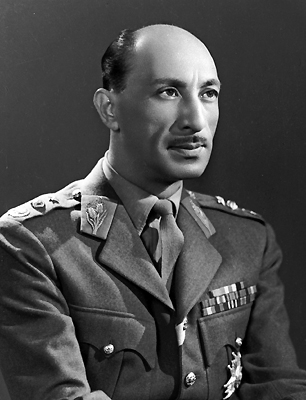
Mohammad Zahir Shah was the last king of Afghanistan, reigning from 8 November 1933 until he was deposed on 17 July 1973. Ruling for 40 years, Zahir Shah was the longest-serving ruler of Afghanistan since the foundation of the Durrani Empire in the 18th century.

Mohammad Daoud Khan was an Afghan military officer and politician who served as prime minister of Afghanistan from 1953 to 1963 and, as leader of the 1973 Afghan coup d'état which overthrew the monarchy, served as the first president of Afghanistan from 1973 until his assassination in the Saur Revolution.

The National Museum of Afghanistan is a two-story building located across the street from the Darul Aman Palace in the Darulaman area of Kabul, Afghanistan. It was once considered to be one of the world's finest museums. There have been reports about expanding the museum or building a new larger one.

Mohammad Yaqub Khan was Emir of Afghanistan from February 21 to October 12, 1879. He was a Pashtun and the son of the previous ruler, Sher Ali Khan.
The Prince Claus Fund is an independent foundation dedicated to culture and development.
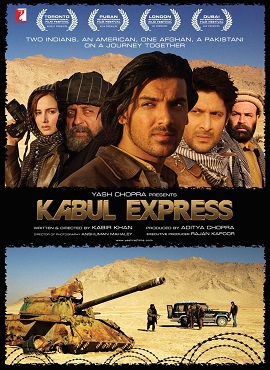
Kabul Express is a 2006 Indian Hindi-language adventure thriller film written and directed by documentary filmmaker Kabir Khan and produced by Aditya Chopra under Yash Raj Films. It was released on 15 December 2006. The film stars John Abraham, Arshad Warsi, Salman Shahid, Hanif Humgaam and Linda Arsenio. Kabul Express is the first fictional film for director Kabir Khan who has made several documentaries over the years in Afghanistan. According to him, Kabul Express is loosely based on his and his friend Rajan Kapoor's experiences in post-Taliban Afghanistan. Kabul Express was shot entirely in Afghanistan.
Mohammad Hussain Sarāhang was an Afghan ghazal singer and an exponent of Indian classical music from Kabul, Afghanistan. He is popularly known with the honorific Ustad Sarahang and has been renowned as the "crown of Afghanistan’s music".
The following lists events that happened during 2004 in Afghanistan.
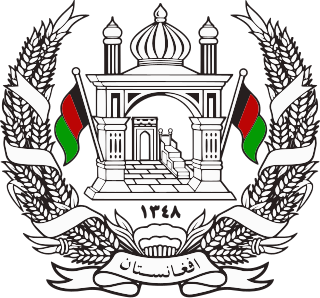
The Barakzai dynasty, also known as the Muhammadzai dynasty, ruled what is now Afghanistan from 1823 to 1978, when the monarchy ended de jure under Musahiban Mohammad Zahir Shah and de facto under his cousin Sardar Mohammad Daoud Khan. The Barakzai dynasty was established by Dost Mohammad Khan after the Durrani dynasty of Ahmad Shah Durrani was removed from power. As the Pahlavi era in Iran, the Muhammadzai era was known for its progressivist modernity, practice of Sufism, peaceful security and neutrality, in which Afghanistan was referred to as the "Switzerland of Asia".
Mohammad Yousef Pashtun is an Afghan technocrat and politician. He served as Minister of Urban Development and Housing for two terms and as Governor of Kandahar province in 2003, replacing Gul Agha Sherzai under President Hamid Karzai's administration. In 2010, he was appointed as Senior Adviser to President Karzai on Construction, Mines, Water & Energy. In 2014, minister Pashtun continued to serve as Senior Adviser to President Ashraf Ghani. Yِousef Pashtun is also chairing the Kabul New City Development Authority Board.
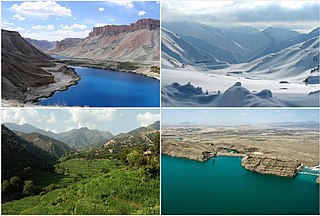
Tourism in Afghanistan is regulated by the Ministry of Information and Culture. There are at least 350 tourism companies operating in Afghanistan. Tourism was at its peak before the 1978 Saur Revolution, which was followed by the decades of warfare. Between 2013 and 2016, Afghan embassies issued between 15,000 and 20,000 tourist visas annually. Following Taliban's return to power in August 2021, visitor numbers gradually increased from 691 in 2021 to 2,300 in 2022, reaching 7,000 in 2023.
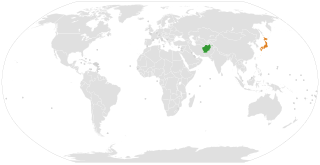
Diplomatic relations between Afghanistan and Japan were officially established in 1931, although early contacts date back to 1907 when the Afghan general Ayub Khan, who defeated the British in the Battle of Maiwand, visited Japan.

The Republic of Afghanistan was the first republic in Afghanistan. It is often called the Daoud Republic, as it was established in July 1973 after General Sardar Mohammad Daoud Khan of the Barakzai dynasty alongside senior Barakzai Princes deposed his cousin, King Mohammad Zahir Shah, in a coup d'état. The occcasion for the coup was the 1964 Constitution of Afghanistan, that took power from most members of the royal family, in favour of the centralization under Zahir Shah and his offspring under the tenet of democracy. Daoud Khan was known for his autocracy and attempts to modernize the country with help from both the Soviet Union and the United States, among others.
2003 in Afghanistan. A list of notable incidents in Afghanistan during 2003













